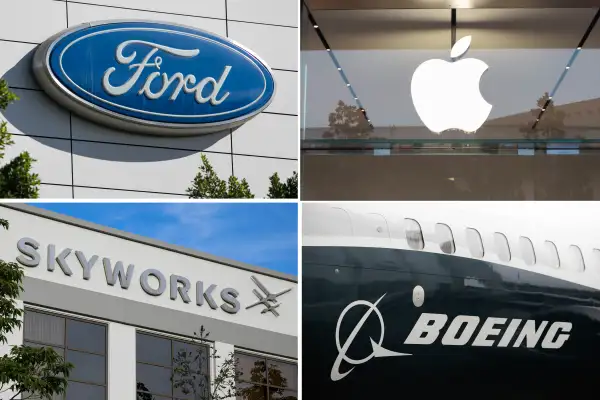These Are the Stocks a Trump Trade War Could Hurt the Most
Money is not a client of any investment adviser featured on this page. The information provided on this page is for educational purposes only and is not intended as investment advice. Money does not offer advisory services.

Investors are worried about how a trade war could affect the stock market. Some companies' shares could be hurt more than others'.
Despite some recent market jitters, President Trump hasn't backed down from his trade spat with China, signaling his resolve to add 10% tariffs on $200 billion more of Chinese exports, earlier this week. It would be the third – and largest – set of tariffs to hit, stoking further fears of a drawn out trade conflict.
What companies could be most impacted? The investment research firm Leuthold Group has tried to provide some clarity, by using Google data on when discussions of “trade war” and “tariff” searches peak. They put together a group of 40 companies in the S&P 500 that had large declines in stock value during those moments of chatter. (They’ve also mixed in a few names that have significant foreign exposure to revenues.)
It captures “companies not only sensitive to tariffs on a fundamental basis, but also perceived by the market as sensitive to trade tensions,” wrote the author, Leuthold senior analyst Jun Zhu.
During the first trade escalation of tensions, during March and April, the group fell by 8.5%, nearly seven percentage points more than the entire S&P 500.
Among the industries most affected: Information technology, with a dozen companies on the list, and industrials with 10 companies. You can find Leuthold's full list, here, although it's behind a paywall. We've singled out some of the biggest names.
Apple
Tim Cook’s company has $144 billion in revenue – about 62% of total sales – coming outside the U.S and 30% of those foreign sales come from China. For Apple, though, it’s not just sales that should concern you; it also uses the Asian tech sector to manufacture many of its phone and computer parts making it more expensive and difficult to obtain those components. It’s a possible reason why the company has fallen 2% in the past month, after climbing 46% last year.
Ford Motor Company
Ford hasn’t exactly rolled off the lot recently, down 13% in 2017. With $63 billion in revenue coming from outside the U.S., investors continue to keep the name at the dealer. The Asia-Pacific business accounts for 10% of revenues, but investors might also be punishing it for the four plants it owns in the region. Ford has stalled 9% over the past month and 12% for the year.
Boeing Company
Boeing is the biggest manufacturer of planes for China and the region is the company’s largest export market. In April, when China announced $50 billion in tariffs, it included airplanes. But, likely due to China’s reliance on the planes, it spared Boeing’s larger aircraft, like the 787, in the announcement. The stock has remained resilient, up 5% since China’s declaration, although that pales in comparison to the 90% takeoff it saw last year.
Skyworks Solutions
Leuthold Group specifically noted that semiconductor firms in the S&P have a significant exposure to the Far East, especially Apple parts provider Skyworks. The Woburn, Mass., company has a whopping 83% of revenues coming from China. So far, it has escaped significant sell-off to this point, down just 1% over the past three months, although that could change with every additional tariff.
